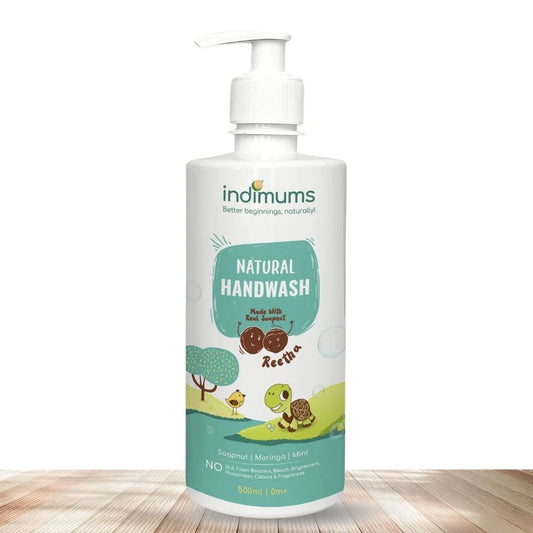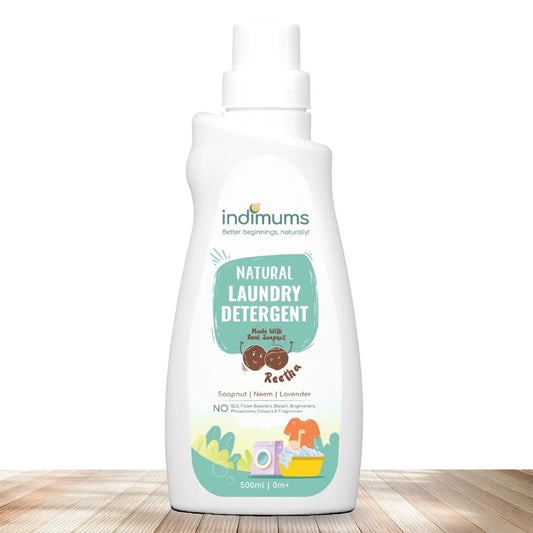Most parents would wish to get a baby body wash that is gentle and safe for their little ones. It is hard, though, to identify what not to use in their babies' bodies because the babies' skin is extremely sensitive and thus can react with more irritation and allergy easily. Some of these can also take away the natural oils of the baby's skin or cause health complications for an extended period. Here is a guide to the quick recognition of dangerous ingredients and informed selection.
- Avoid artificial fragrances and dyes
You often find fragrances and dyes in numerous personal care products, but an infant does not necessarily require them. Artificial fragrances often contain hundreds of unreported chemicals that could lead to irritation of the skin, rashes, and respiratory problems. Some research even indicates that excessive exposure to artificial scents disrupts hormonal balance. Keep your little one safe by looking for fragrance-free products or products using only natural essential oils
- Avoid Parabens and Phthalates
Parabens and phthalates are preservatives added to products to increase their shelf life, but they're not a good thing for babies. Parabens are estrogen mimics that interfere with hormones and can even continue to affect reproductive development years later. Phthalates are hidden under terms such as "fragrance," and they have also been linked to hormone disruptions. Try to find a baby body wash that is labeled "paraben-free" and "phthalate-free."
- Say no to SLS and SLES
SLS and SLES are the most widely used foaming agents, which suck out moisture from sensitive baby skin, making it more susceptible to irritation. These sulfates strip the skin of its natural oils and then break the protective barrier of the skin. Moreover, during the production process, SLES can be contaminated with a by-product called 1,4-dioxane, which is a known carcinogen. Choose a sulfate-free body wash so that it is gentle on the skin.
- Be Cautious about Formaldehyde-Releasing Preservatives
Some preservatives in baby body wash release formaldehyde, which is carcinogenic, to prevent the product from spoiling. Quaternium-15, DMDM hydantoin, and imidazolidinyl urea slowly release formaldehyde from the product. These can cause irritation on the skin, discomfort in the eyes, and respiratory problems; especially for babies with fragile skin. Always look at the labels for these formulators of formaldehyde. Avoid products that contain those as well.
- Avoid Mineral Oils and Petroleum Derivatives
Mineral oils and other petrochemical-based ingredients are also used in body wash of babies due to their emollients. However, they do clog pores, trapping dirt and bacteria, and causing the issues that come up on the baby's skin. Also, these chemicals are most probably going to irritate, and when used too many times, they may even promote dryness on the skin. To prevent all these issues on your baby's skin, look for a body wash for your baby that has coconut or almond oil as a plant-based alternative that is safe.
- Consider Natural and Organic Alternatives
One of the best ways to ensure your baby's body wash is safe is to opt for natural and organic products. These typically avoid harmful chemicals and use gentle, plant-based ingredients suitable for sensitive skin. Certified organic products go through stringent checks to ensure they're free of pesticides, synthetic additives, and toxic ingredients, making them a safer choice. Look for labels from trusted certification bodies to verify a product's authenticity.
End
Choosing the right baby body wash involves some research, but the extra effort is well worth it. Avoiding such products as artificial fragrances, parabens, sulfates, formaldehyde-releasing agents, and mineral oils will help prevent such irritants and dangerous chemicals from affecting your baby's sensitive skin. Instead, look for products that contain plant-based ingredients to keep your baby's skin soft, healthy, and irritation-free. This small step can make a big difference in your child's skin health and wellness.




